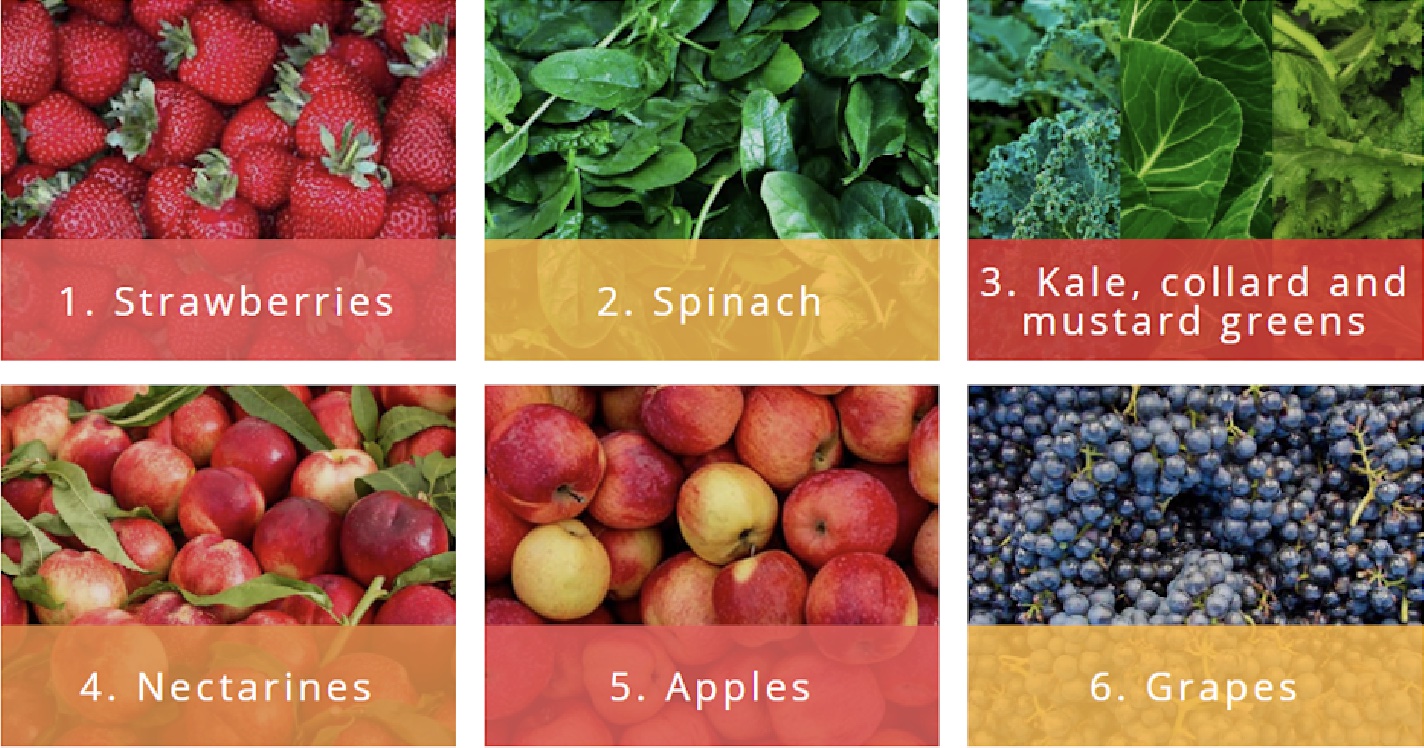Which 12 kinds of fruits and vegetables have more pesticide residues in cherries, strawberries and peppers on the list?
Fruits and vegetables contain food fiber, and parents want children to eat more. The United States has organized a list of 12 fruits and vegetables with the largest number of pesticide residues, most of which are favorite foods for children. Parents remember to wash the ingredients thoroughly!
Fruits and vegetables will be sprayed with pesticides during the planting process, and there is still a chance of pesticide residues even after cleaning. The American Environmental work Organization (Environmental Working Group, EWG) tests pesticide residues in common fruit and vegetable samples every year. The sample has been thoroughly cleaned before testing and has been peeled where applicable. It was found that pesticide residues were detected in the fruits and vegetables often eaten by many Hong Kong families even after washing. The "most poisonous" was strawberries, and the popular "super food" kale also made it into the top three.

12 dirtiest fruits and vegetables (Dirty Dozen ™)
1. Strawberry
two。 Spinach
3. Kale, mustard
4. Peach and plum
5. Apple
6. Raisin
7. Cherry
8. Peach
9. Pear
10. Colored pepper, pepper
11. Celery
twelve。 tomato
It is difficult for the public to identify pesticide residues in fruits and vegetables by the naked eye. The Centre for Food Safety recommends the following methods of washing fruits and vegetables:
1. Rinse vegetables thoroughly with running water.
two。 If appropriate, scrub hard agricultural products with a clean brush to remove dirt and other substances (including pesticides and contaminants) from surfaces and crevices.
3. Washing vegetables with soaps, formula detergents or agricultural detergents is not recommended.
- Prev

AFCD found African classical swine fever virus from wild boar carcass
The Agriculture, Fisheries and Conservation Department announced that samples taken from a dead wild boar were found to be infected with African classical swine fever virus. In response to the recent death of a number of wild boars near Wong Yue Tan in Tai Po, AFCD staff took samples of a more complete wild boar body found at the above location and found that the sample was right or wrong.
- Next

Israel grows palm-sized world's largest giant Ylang strawberries, each weighing a record 289 grams
Chahi Ariel, a farmer in Kadima, Israel, planted a giant strawberry in his strawberry garden in 2021. It weighs 289 grams, five times the weight of ordinary strawberries. It is like several strawberries fused together to form a fan shape. It is 18 cm long and 4 cm thick.
Related
- A one-day flower show brings 130 million yuan in orders! Nanhai, this Phalaenopsis exhibition is amazing
- What do the flower language and meaning of Lutheran tree mean? Precautions for planting Lutheran tree
- Encounter Chaoshan Kongfu tea, not without this cup of Phoenix single clump
- The durian market in Vietnam and Thailand is flooded. The price of imported durian has plummeted by 30-40% in a month.
- Shanghai solved the problem of local vegetable supply by planting 80,000 mu of green leafy vegetables.
- Wageningen University has become the best agricultural university in the world for the seventh time in a row.
- The strongest export season of South African grapes is full of challenges, with exports to Russia falling sharply by 21%.
- Sri Lanka is on the verge of bankruptcy, "Tea for debt" Organic Agriculture Revolution aggravates the Food crisis?
- Turning waste into earthworm manure and worm manure into organic fertilizer-A new choice for auxiliary farming
- Organic rice growers shoulder the responsibility of nurturing agricultural talents! Yinchuan Sustainable Farm with Organic Life Camp

